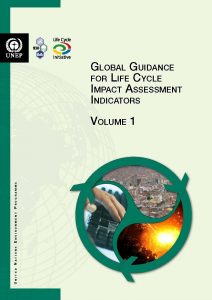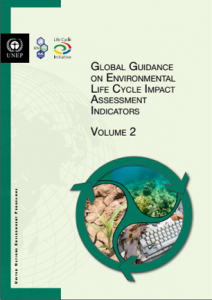Go to the UNEP-GLAM project pageThe UNEP-GLAM initiative is characterised by several phases providing guidance on a distinct set of indicators: Phase 1 [2013-2016]: Greenhouse gas emissions and climate change impacts, health impacts of fine particulate matter, water use related impacts – water scarcity and human health impacts, land use related impacts on biodiversity, cross-cutting issues Phase 2 [2017-2019]: Acidification and eutrophication, human toxicity, natural resources – mineral primary resources, land use impacts on soil quality, ecotoxicity, cross-cutting issues Phase 3 [2019-ongoing]: aims at establishing a comprehensive, consistent and global environmental Life Cycle Impact Assessment Method (LCIA), Building on the recommendations for nine impact categories from the first two phases. "Metadata descriptors", delivering a basic list of metadata descriptors to facilitate interoperability and the assessment of "fitness for purpose" by users, as well as advanced recommendations on how interoperability and assessment of fitness for purpose can be enhanced in the future. The final report of the working group can be accessed here . Involvement of the JRC in GLAM’s activitiesThe JRC is supporting GLAM at different levels, participating in meetings and providing scientific inputs, documentation and technical support, in order to follow possible alignment with ILCD and EF methods’ development.
|  
|

